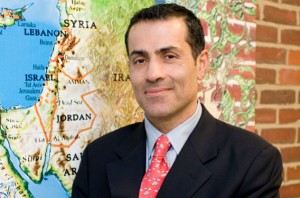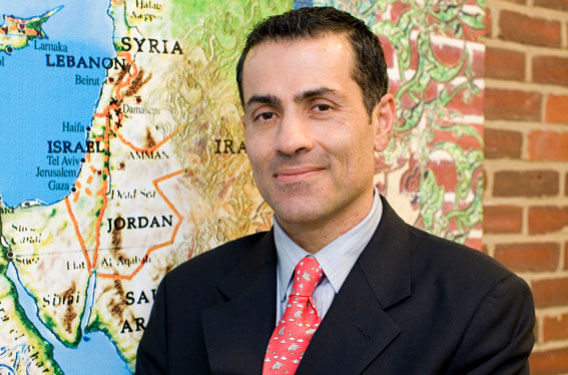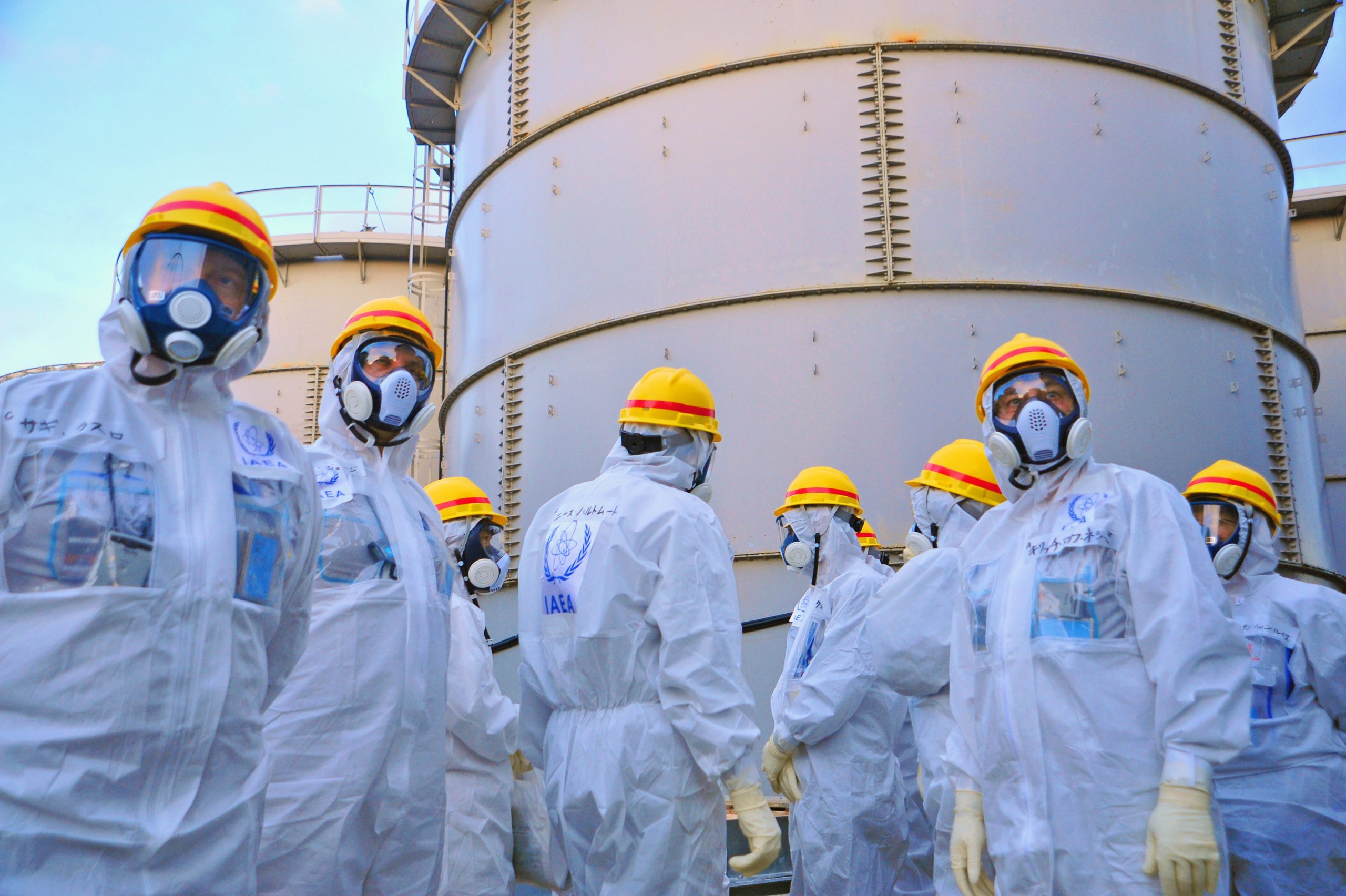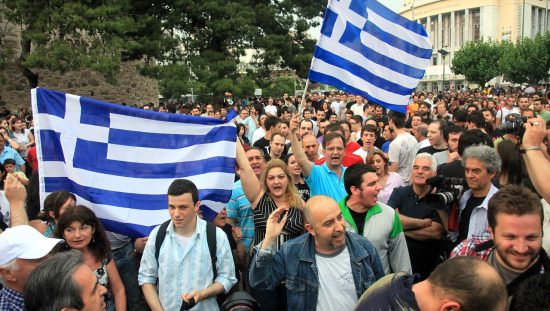On March 6, 2012, the NUPR’s International Editor Dominic Contreras sat down with Tufts University Professor Vali Nasr, one of the world’s foremost experts on Iran and the Muslim world, to discuss the Iranian nuclear program and possible responses to it. Below is an excerpt of that interview.

Q: Over the past year we’ve heard a multitude of differing opinions and prescriptions as to what Iran is doing with its nuclear program; Ayatollah Khamenei and Iranian President Mahmoud Ahmadinejad would have the world believe that their program is entirely peaceful, while others, like Israeli Prime Minister Benjamin Netanyahu, are convinced that Tehran is attempting to build a nuclear weapon. What is your take on the situation; is Iran in-fact trying to build a nuclear weapon or is their program aimed at civilian purposes?
Vali Nasr: Well, we don’t know exactly largely because we don’t have great transparency into their decision making process. U.S. intelligence has said that they don’t believe that Iran has made the decision to actually build a bomb. What is very clear is that they are obviously building the necessary infrastructure and at some point in time, could have the capability of producing enough uranium at sufficiently enriched levels that could be used for making a bomb.
There are two different issues here: one is whether or not a country, and in this case Iran, has actually made a conscious political decision to build a bomb, like India or Pakistan or North Korea or Israel did some time ago; or whether or not it is building the infrastructure, knowledge, educational basis, facilities etc., that would allow it to master the technology of enrichment. That by and large, at any point in time, will have a potential military capability. So these are two separate issues. Iran says that it is interested in learning and mastering enrichment, the international community says’ well that has military implications’. What is clear is that Iran has not said it wants a bomb, unlike Pakistan and India when they went nuclear, and our intelligence doesn’t believe they made the political decision. So this is all in the realm of potentiality.
***
Q: To be clear, any peaceful nuclear program can have military capabilities?
Of course, absolutely, because it’s the same infrastructure. Ultimately every peaceful nuclear program at some point can have military capabilities or allow you to develop nuclear military capabilities. Much of the nuclear technology is duel use. Obviously if you build a power plant to generate electricity you can’t use that to build a bomb. But the centrifuge process, the training of engineers, building a lot of the infrastructure, getting the know-how, a lot of this is duel use. So once a country, like Japan, masters the knowledge of how you can enrich uranium to very high levels and build sufficient numbers of centrifuges to do so, they can very easily produce the uranium that they need to build a bomb.
The only question is, they need to get enough uranium to actually be able to enrich and secondly a political decision to go that last mile and design a warhead that you would put the uranium inside. So a program that is built for peaceful purposes in Iran gets Iran that much closer to at some point in time taking that final step. Even if the decision hasn’t been made now, they could always make that decision much more quickly. So if the country is only six months away from the bomb because they have enough fuel, they have the centrifuges, they have the engineers, they have the facilities, it’s so much farther ahead than a country that wants to start tomorrow morning to build a nuclear program.
**
Q: Is Iran more likely to want a bomb right now than they were say two or three years ago when the last substantive discussions on their nuclear program took place, especially with all the talk of an Israeli military strike against Iranian nuclear sites?
VN: There are plenty of reasons to see why Iran would want a nuclear bomb. They were subject to weapons of mass destruction, attacks by Iraq during the Iran-Iraq war and international treaties and the international community were no defense in that regard. Three decades of sanctions has weakened their military. They have a much weaker, technologically speaking, military than Saudi Arabia, UAE, Israel, and Turkey. They have great ambitions for being taken very seriously as a great power in this region and all of that suggests that they would get a lot of heft if they actually had nuclear capability. And since the U.S. invasion of Iraq, Iran obviously see’s that you have to have some kind of a deterrence capability to keep the United States out of your hairs, if you would, from potentially invading you or changing your regime.
I think that the talk of war and the pressure on Iran cuts both ways. At one level, it’s a warning; it focuses them on ‘maybe this is not a good idea, maybe we ought to stop’ and on another level it actually makes them feel much more vulnerable and insecure and therefore says that maybe we should get there faster. I don’t think there is a single explanation and I think this is a subject of debate within Iran as to whether they should stop or push ahead. The logic of why Iran would want nuclear capabilities, there are a number of reasons and annihilation of Israel is not actually a top priority issue; it’s much broader and deeper and has to do with all their strategic priorities.
***
Q: In recent months we’ve seen increased sanctions from the West being directed against Iran in an effort to half its nuclear program. However, you have spoken out against sanctions and containment and called for diplomacy in dealing with Iran. Why do you believe that diplomacy is preferable in this situation?
VN: Sanctions haven’t worked, period. Iran has continued to build its program under sanctions. Sanctions have hurt the people and have reduced chances of democracy and opening in Iran, they haven’t changed Iran’s policy, and in fact there is an argument that they have actually encouraged Iran to get to the nuclear point of no return faster.
The assumption that sanctions have no cost for the west and that there is something stable, in other words they don’t’ cause conflict, is also no longer the case. The sanctions are also causing the price of oil to go up here and this last set of sanctions were fairly disruptive; Iran threatened closing the Straits of Hormuz and the U.S. threatened that were going to go to war, which means that the war is no longer about hitting Iranian nuclear sites, war is happening as a consequence of sanctions. Sanctions are no longer an alternative to war, they are actually pushing us in that direction. You put sanctions when you really don’t have anything else to do. Sanctions often make the country that imposed them feel good, because they look like you’re doing something when you’re not doing something. So what are the alternatives to sanctions? Now is obviously a different case, but say if you went back to 2009, what were alternatives to sanctions?
One would have been that you go to war. You say that there is no point in talking – and that’s what Prime Minister Netenyahu and some republican candidates are saying – stop this issue of vesting your hopes on talks, it’s not going to happen, you may as well just take the final step.
Where the alternative is that you would have done much more serious diplomacy. So you know, you put pressure to get together sides to the table, but you have to aggressively pursue diplomacy. And diplomacy requires that you be more open ended and requires you to persist in it. Obviously the other side is going to say no. Obviously the other side is at the beginning going to put ridiculous maximalist positions on the table, but diplomacy is tedious, diplomacy is difficult, diplomacy requires time, it requires patience, it requires diligence. Diplomacy does not mean that you show up at a meeting and say this is what I want and if the other side says no, say okay thank you very much I’m leaving and we’re going back to the pressure tactics. Whether or not there was a window two or three years ago to aggressively engage Iran, meet with them repeatedly, try to build confidence and maybe try to influence their point of view, maybe it would have failed (plenty of negotiations around the world have failed) maybe it would have succeeded. We don’t know. But at the end of the day we are no better off or not having tried it.
***
Q: Were the two sides to actually get to the table, what would the substance of this diplomacy look like?
VN: A successful first meeting between the United States and Iran is a second meeting. It’s as simple as that. Whereas we often think, you go into a meeting and you’re going to get everything from it; they’re going to suspend their program, open it up to IAEA, that’s not going to happen. There is a proposal by Russia on the table which is called the step-by-step proposal which means that you create a framework where Iran would begin addressing IAEA demands one at a time, but would get something in return one at a time; maybe one sanction lifted at a time. If you can go through three rounds of this, you’ve built some trust, because something the Iranians did they can trust the Americans would actually reciprocate. Right now you really don’t have any example of reciprocation. The Iranians claim that whenever they’ve extended a hand, they’ve been slapped. And the Americans claim that whenever they’ve extended a hand, the Iranians have rejected it. So there is no evidence on either side of actually a positive step.



